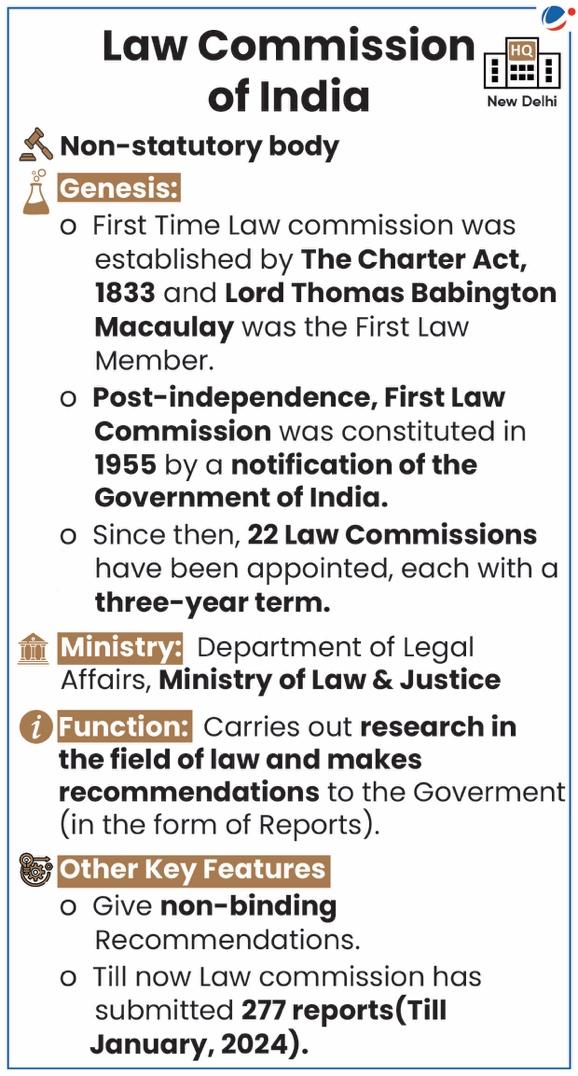Why in the News?
The Law Commission in its report No. 285 titled “The Law of Criminal Defamation” has recommended that the offence of criminal defamation should be retained in the new criminal law.
About Criminal Defamation
- As per the Black's Law Dictionary, defamation means "The offence of injuring a person's character, fame, or reputation by false and malicious statements".
- Defamation is categorised into two types written of liber and oral or slander:
- Libel is an untrue defamatory statement that is made in writing. Slander is an untrue defamatory statement that is spoken orally.
- According to Indian Law, libel and slander, both are considered to be criminal offences. Such statements are to be made in public to constitute defamation.
- Indian Penal Code (IPC) section 499 makes it unlawful to communicate any false information about an individual to harm their reputation and the prescribed maximum punishment is two years.
- However, Section 354(2) of the 2023 Bharatiya Nyaya Sanhita Act states: “Whoever defames another shall be punished with simple imprisonment for a term which may extend to two years, or with fine, or with both or with community service.”
- The Supreme Court of India in Subramanian Swamy v. Union of India (2016) upheld criminal defamation, balancing free speech and the right to protect reputation.
- Law commission highlighted that reputation is an important facet of Article 21 of the Constitution, which "cannot be allowed to be jeopardised just because an individual has to enjoy his freedom of speech" at the expense of hurting the sentiment of another.
- Article 19 (2) enumerates grounds on which restrictions on the freedom of speech and expression can be imposed, one of which is defamation.
- According to data published by UNESCO, 160 countries in the world criminalize defamation.

Arguments for Retaining the Law of Criminal Defamation | Arguments against Retaining the Law of Criminal Defamation |
|
|








